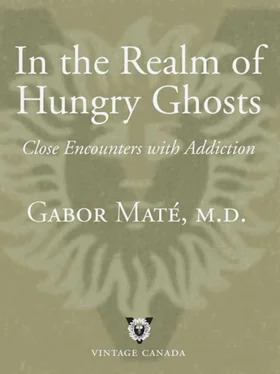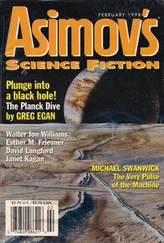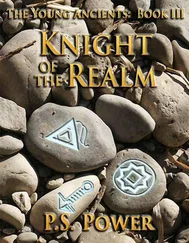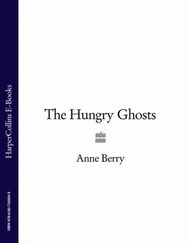“Yes. You think that’s funny?”
“Of course not.”
“Do you know that my grandparents were killed in Auschwitz under that sign? My grandfather was a doctor….”
“He starved the Germans to death,” says Ralph as if stating an incontrovertible fact.
That ought to be my cue to end the exchange. I’m drawn in, however, by my determination to preserve my professional sangfroid and the therapeutic contact with the patient. Moreover, I’m curious to know just what this man is all about.
“My grandfather was a physician in Slovakia. How did he starve the Germans to death?”
Ralph’s placid pseudo-rationality evaporates in a nanosecond. His sallow cheeks quiver with anger, his voice rises and the velocity of his speech accelerates with every word. “The Jews had all the gold, they took all the oil paintings…they took all the art…they were the police officers, judges, lawyers…and they starved the German people to fucking death. That Jew Stalin slaughtered 90 million Germans…the invasion of our fuckin’ country…being fuckin’ paralyzed, starved to death. You know that as well as I do. I got no remorse for you…I got no grief for you.”
If as a Jew and infant survivor of genocide I can receive these ravings calmly, it’s because I know they’re not about me or my grandparents or even about World War II or Nazis and Jews. Ralph is showcasing the terrible unrest of his soul. The suffering Germans and rapacious Jews in his narrative are projections of his own phantoms. The erratic mishmash he calls history reflects his inner chaos, confusion and fear. “I starved in Germany as a kid and I fuckin’ starved in this country, too…Came here in 1961.” (Ralph arrived as a teenager.) “Fuck Canadians. I hate Canadians.”
It’s time to leave ethnic relationships and history behind. “Okay,” I say. “Let’s see how the morphine works for you.”
“How many do I have?”
“Four or five days’ worth. Then I’ll need to see you again.”
“I hate going to the doctor’s office all the time. I hate the doctor’s office. It’s a waste of time.”
“I hate the gas station, too,” I assure him, “but I go; otherwise, I run out of gasoline.”
Ralph is conciliatory. “ Danke, mein Herr …no hard feelings.”
“No,” I say.
We exchange cordial auf Wiedersehens to end this, our first encounter. There are many more to follow, several ending with Ralph hoisting the Nazi salute. Enraged when I refuse his demand for this or that drug, he screams, “ Heil Hitler! ” or “ Arbeit macht frei, ” or the ever-endearing “S chmutzige Jude —dirty Jew.” Not that I have endless tolerance for Nazi slogans projected at me in idiomatic German. Generally I rise when the rant begins and open the door to signal the end of the visit. Ralph usually takes the hint, but on one occasion I threaten to call the cops if he doesn’t expeditiously remove himself from my office.

The German Ralph speaks is not always full of hate-filled invective. He declaims staccato paragraphs of fluent German or lines from the Iliad in what sounds plausibly like ancient Greek. The second time we meet, he erupts in a storm of German recitation; the only word I recognize is “Zarathustra.” “Nietzsche,” he explains. “When Zarathustra was thirty years old he left his home and the lake of his home and went into the mountains….”
These lines from Nietzsche roll rapidly off his tongue, as do quotations from other classics of his native country’s literature. It’s impossible to know how much truth there is in his idiosyncratic anecdotes, but his knowledge of culture is impressive—all the more so, since it seems largely self-acquired. His claims to have completed college here or there strike me as dubious. Diploma or none, he is well read.
“I love Dostoevsky,” he informs me one day. I decide to test him.
“Perhaps my favourite author,” I say. “What have you read by him?”
“Oh,” says Ralph, nonchalantly rattling off several titles of the Russian author’s novels and short stories: “ The Possessed, Crime and Punishment, The Gambler —I liked that one especially, you know, being an addict— Notes from the Underground …Never got through The Brothers Karamazov. Too long.”
Another time he tells me about an adventure he had as a youth, when he was back in Germany on a visit.
“I took this girl into Beethoven’s Geburtszimmer. ”
I recall my rudimentary childhood German— geboren, to be born; Zimmer, room. “Beethoven’s birth room?”
“I took some wine and cheese and some salami and some marijuana. Yes, the room he was born in. We broke in. I jimmied the lock, took this girl up and I played his piano and had a great time.”
“Ha,” I say, raising a skeptical eyebrow. “What city was that in?” Another test.
“Bonn.”
“Yes, Beethoven was born in Bonn,” I murmur.
Ralph, a shade cocaine-manic, segues right into an entirely unexpected performance.
“Here’s a poem I wrote you might like. It’s called ‘Prelude.’” His staccato recital is delivered in a low, grainy voice at a pace so fast that the listener is barely aware of his taking any breaths from beginning to end. The poem is composed of rhyming couplets in a steady pentameter. It speaks of loneliness, loss, fatalism.
“You wrote that?”
“Yes. I’ve written five hundred pages of poems. It was my life. Where they are now, I don’t know. I was homeless for five years. I left my poems in a hostel where I stayed for a week. They wanted a hundred dollars to get my stuff back, but I couldn’t afford it. Maybe it was auctioned off, maybe the security guard got it, maybe it went into the garbage. I don’t know. I just remember a few pieces. It’s all gone. I’ve lost everything.”
Ralph is uncharacteristically pensive for a moment. Suddenly, his face lights up. “You’ll recognize this,” he says and declaims in rapidly spoken, rhyming German. Never fluent in the language, I’m unable to understand any of it, but I make a happy guess. “That sounds more like Goethe than Goebbels.”
“It is,” Ralph confirms triumphantly. “The final eight lines of Faust.” Without missing a beat he recites in English:
All things transitory
Are but a parable,
Earth’s insufficiency
Here finds fulfillment.
The ineffable
Wins life through love.
The eternal feminine
Leads us above.
He presents this poem without his customary hasty intensity; his voice is soft and gentle.
At home that evening I lift Faust, Part II, off the bookshelf and turn to the last page. There it is: Goethe’s paean to spiritual enlightenment, the blessed union of the human spirit with the feminine principle, with divine love. Goethe, like Dante in The Divine Comedy, represents divine love as a feminine quality. I find Ralph’s translation of Goethe, whether it’s his own or memorized, more moving than the version I have in my hands.
As I read the great German’s poet’s verses in my comfortable home in an upscale, leafy Vancouver neighbourhood, I can’t help thinking that at this very same moment Ralph, supported by his cane, is holding vigil somewhere in the dusky and dirty Hastings Street evening, hustling for his next hit of cocaine. And in his heart he wants beauty no less than I, and no less than I, needs love.
If I understand him well, above everything Ralph aches for unity with the eternal feminine caritas— blessed, soul-saving divine love. Divine here refers not to a supernatural deity above us but to the immortal essence of existence that lives in us, through us, beyond us. Religions may identify it with a god belief, but a search for the eternal extends far beyond formal religious concepts.
Читать дальше













